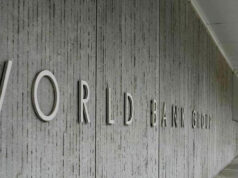THE National Renewable Energy Board (NREB) is looking at a proposal to endorse biomass plants to receive a guaranteed rate for the electricity they produce in areas where they are unable to undergo testing or commissioning and be cleared for the feed-in-tariff (FiT).
“Let’s work on a period when your FiT will become effective when the transmission lines are upgraded,” said Jose M. Layug, Jr., chairman of NREB, the agency that advises the Department of Energy (DoE) on the direction of renewable energy policy.
He said the issue has become contentious in the case of Negros island where transmission lines are limited. He said three biomass plants are expected to be completed in the area within the year.
He said that at the NREB board level, the members have talked to the National Grid Corp. of the Philippines, the DoE and the department’s renewable energy management bureau on the transmission line limitations.
“We want to make sure that if they finish there’s some form of testing and commissioning for them even if the transmission line is constrained,” he told reporters.
“What we’ve told these people, if you finish but you cannot throw power then maybe what we should tell ERC (Energy Regulatory Commission) is to endorse you for FiT but effective when the lines are upgraded,” he said.
As of March, seven biomass power plants had been scheduled for commissioning or completion this year, keeping them in the running for the reduced FiT rate of around P6.60 for each kilowatt-hour (kWh) they export to the electricity grid.
The projects — four in Luzon and three in Mindanao — have a combined capacity of 37.1 megawatts (MW). Should they be able to start commercial operations this year, they qualify for the P6.5969 per kWh degressed FiT rate for the renewable energy.
As of end-2016, the ERC had awarded certificates of compliance to projects with a total capacity of 28.6976 MW, or way below the 250-MW installation target set by the DoE for biomass plants, which convert agricultural waste to electricity.
That certificate serves as basis for the biomass developers’ collection of the guaranteed FiT. Subscription to the installation target and the corresponding FiT is to end in December 2017.
Mr. Layug also said industry associations asked for a three-to five-year extension of the FiT system for biomass and run-of-river power plant projects. Like biomass, the installation target for small hydro-power plants has been undersubscribed.
“What I’ve asked from them — the associations — is give me the details, the rationale behind the extension, how many years and why,” he said.
For run-of-river hydro-power, the DoE under the previous administration set a target of 250 MW with a FiT rate of P5.90 per kWh. As of May 2017, only four projects have been built with a total capacity of 28.70 MW. The rate has been adjusted this year to P5.8705 per kWh as called for by the FiT rules.
Under the FiT system, qualified developers of emerging renewable energy sources are offered a fixed rate per kilowatt-hour of their exported electricity, but excluding the energy for their own use.
“To me the driving force should be how many more years you need to complete the construction, and a component of that is getting the permits,” Mr. Layug said, adding that three years should be enough.
He said the proposed extension was meant for those with power plants under construction but might not be able to complete their projects by the end-December 2017 deadline. — Victor V. Saulon



